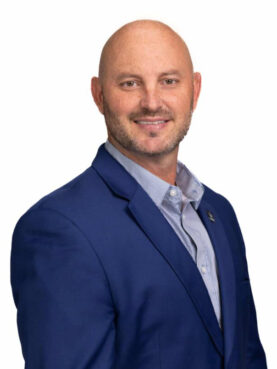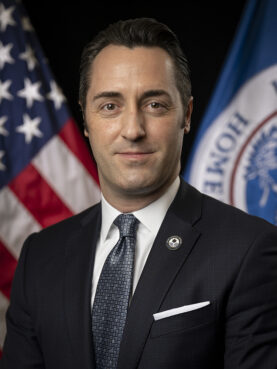(RNS) — When Nick Spencer heard about the shooting that took place last week at a Catholic church in Minneapolis, he, like millions of Americans, was heartbroken. But as the chief operations officer of the security firm Strategos International, he also prepared for what he knew would come next.
“Unfortunately, once an event occurs, there’s a huge inquiry that happens,” he said. “People want to know about resources: ‘What can we do to not be the next victim in this situation?’”
It’s a pattern that repeated across the country at businesses and groups that, like Spencer’s, help houses of worship develop emergency protocols and step up security, including armed guards, to protect against mass shooters and other threats. Long seen as unnecessary or even anathema by faith groups that oppose the presence of guns on principle, security firms say religious communities are increasingly requesting their services as the number of houses of worship impacted by mass shootings, while still rare, continues to rise.
Some have sought the counsel of businesses such as Strategos, a Christian business that offers training to faith leaders in addition to deploying Strategos security personnel at schools and houses of worship. “There’s an old saying in law enforcement: When seconds matter, police are only minutes away,” he said.

Nick Spencer. (Photo courtesy of Strategos International)
According to Spencer, demand for Strategos’ services has grown as mass shootings at houses of worship continue to make headlines, as when gunmen attacked a Sikh temple in 2012 in Wisconsin; 11 people were killed in 2018 at the Tree of Life synagogue in Pittsburgh; and a white supremacist killed nine people in 2015 at the historic Mother Emanuel AME church in South Carolina.
According to The New York Times, the Minnesota shooter’s diaries indicated a preference for the church instead of other targets because it was assumed fewer people there were likely to be armed.
Michael Masters, who heads the nonprofit Secure Community Network, said Jewish institutions have developed expertise in securing their sacred spaces after enduring multiple attacks. “The Jewish community has lived with this reality for years,” he said, recalling the 2022 hostage crisis at a Colleyville, Texas, synagogue and more recent antisemitic attacks in Washington, D.C., and Boulder, Colorado. “We have made substantive investments in the safety and security of our faith-based institutions in the Jewish community.”
More recently, Masters said, his network has been sharing its security expertise with a wide variety of religious groups. “In respect to other faith-based groups, we are not waiting to get calls. We are making calls,” he said.
Both Masters and Spencer mentioned at least three of the same security tips for houses of worship: Putting ballistic film on windows, installing security cameras and fortifying doors with locks.
Masters noted that bolstering security for faith groups is an issue that enjoys rare bipartisan support in Washington. He pointed to the Nonprofit Security Grant Program, an initiative suggested by the Jewish Federations of North America in 2001 and funded through the Federal Emergency Management Agency since 2004. The program received a large increase under President Joe Biden, with funding reaching $454 million in 2024. Last month the Trump’s administration announced that it has already awarded $110 million to applicants through the program.

Michael Masters. (DHS Photo by Benjamin Applebaum/Public Domain)
“We are incredibly grateful for that strong support,” Masters said, though he argued the program should receive more funding. Senate Minority Leader Chuck Schumer of New York has urged Congress to raise funding for NSGP to $1 billion — an increase Masters also supports.
Even so, faith leaders say “hardening” houses of worship isn’t the only way to keep worshippers safe — or, for many, even their preferred method. Many houses of worship ban guns on their property, and religious groups have been among the loudest calling for gun control legislation. The U.S. Conference of Catholic Bishops and many other religious denominations have called on elected officials to take steps ranging from banning assault weapons to requiring universal background checks for gun purchases.
“I believe the gun lobby is no match for the cross lobby,” the Very Rev. Gary Hall, then-dean of the Washington National Cathedral, said in 2012 in the aftermath of the mass shooting of children in Newtown, Connecticut.
But after years of inaction on Capitol Hill, Masters and Spencer say religious communities are turning to security experts for help — even as those experts themselves join with faith leaders in calling for more action to halt the growing death toll.
“We are losing hundreds of children to targeted violence, targeted violence by individuals such as this offender, who are driven by hate and inspired by violence,” Masters said. “We need to do something about that seriously. And it’s not just for the security experts. It cannot be just higher walls and stronger doors and barricaded windows.”







